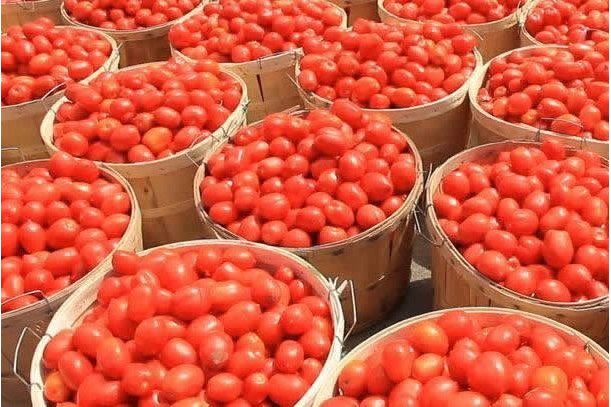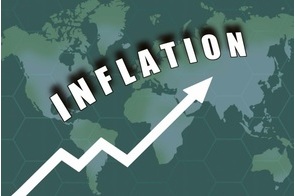Latest News
Nigeria’s inflation jumps to 31-month high on food prices

News Highlight
The Consumer Price Index rose to 13.71 per cent year-on-year in September, compared to 13.22 per cent reported in August 2020.
The National Bureau of Statistics (NBS) released its latest monthly inflation report today showing Nigeria’s Consumer Price Index (CPI) rose to 13.71 per cent year-on-year in September. This represents the thirteenth consecutive monthly rise in the CPI and the highest inflation rate recorded since February 2018 when the CPI stood at 14.33 per cent.
The headline inflation rose last month by 49 basis points (bps) (or 0.49 percentage point), compared to 13.22 per cent reported in August 2020. On a month-on-month basis, the CPI increased by 1.48 per cent in September, or 0.14 percentage point higher than the rate recorded in the previous month (1.34 per cent). The NBS said there were increases in all major indices that yielded the latest data for the main inflation index.
Food inflation – which accounts for more than half the inflation basket – rose by 66 bps to 16.66 per cent last month compared to 16 per cent reported in August 2020, according to the statistics agency. The food inflation in September was also the highest recorded since February 2018.
The NBS said the rise in the food inflation was caused by increases in prices of bread and cereals; potatoes, yam and other tubers; oils and fats; fish and meat; and fruits. On a month-on-month basis, the food sub-index increased by 1.88 per cent in September, up by 21 bps when compared to 1.67 per cent recorded in the preceding month.
Based on state profiles, food inflation was highest in Zamfara (20.94 per cent), Kogi (19.06 per cent) and Plateau/Yobe (18.90 per cent), while Nasarawa (13.94 per cent), Lagos (13.87 per cent) and Ondo (13.59 per cent) recorded the slowest rise.
Core inflation, which excludes the prices of volatile agricultural produce, stood at 10.58 per cent in September, up by 0.06 percentage point when compared to the preceding review period. The statistics agency said the highest increases were recorded in prices of passenger transport by air, pharmaceutical products, hospital services, medical services, and maintenance and repair of personal transport equipment.
Price increases were also recorded in vehicle spare parts, motor cars, passenger transport by road, repair of furniture and paramedical services.
The latest data shows the headline inflation rate has risen by 269 bps since August 2019, while the food inflation rate has risen by 349 bps in the same period. This indicates the effect of rising food prices on the headline index. The pressure on food prices has been attributed to the Nigerian border closures and COVID-19 restrictions. The removal of petrol subsidy by the Nigerian government is also expected to further accelerate the inflation rate.
During his presentation of the 2021 Appropriation Bill to a joint session of the National Assembly (NASS) last week, President Muhammadu Buhari projected next year's annual inflation rate at 11.95 per cent. Earlier this week, Professor of Applied Economist at the Johns Hopkins University in the United States, Steve Hanke, described Buhari's inflation projection as "wishful thinking."
Hanke said his latest measure of Nigeria's inflation rate was 29.53 per cent. His rate is more than twice as high as the official inflation rate as reported by the NBS. The economist said his annual inflation rates are measured based on a purchasing power parity (PPP) model, which he said represents the “gold standard” for measuring inflation for countries experiencing elevated inflation rates and/or hyperinflation. The PPP-determined inflation rate model uses black market exchange rate data and high‐frequency (daily) data available on the last day of the month.
Hanke's measurement of Nigeria's inflation put the rate at 31 per cent in August. Compared to his latest measurement, this represents a decline of 1.47 percentage points.
Related News
Latest Blogs
- Implementation strategy crucial for the success of 12-4 education policy
- A senator’s suspension threatens the right of representation
- Tinubu’s promising revolution in infrastructure development
- Has Tinubu’s economic reform started working?
- Implications of relaxed FCPA enforcement in Nigeria
Most Popular News
- Artificial intelligence can help to reduce youth unemployment in Africa – ...
- CBN net reserve hits $23.1 billion, the highest in three years
- Tinubu appoints new Board Chair, Group CEO for NNPC Limited
- TCN assures fully functional SCADA system in six months’ time
- Analyst provides mixed reaction to Nigerian equity market performance
- MTN Nigeria records N400 billion net loss in full year 2024 results
_-_728x90-202501141438152396.jpg)








